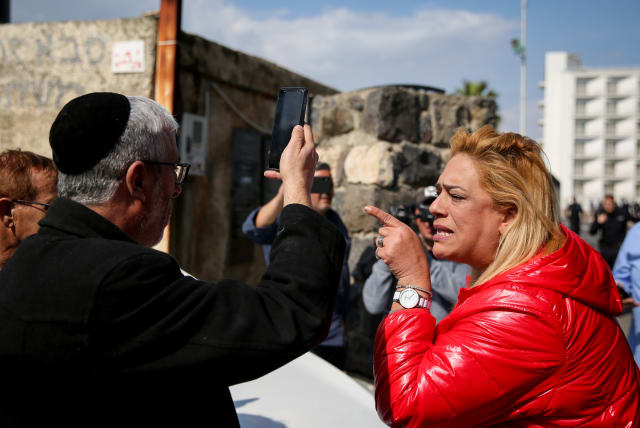Secular, Orthodox Israelis open up about religious tensions in Israel - survey

Findings show that the secular public feels under attack from the other side in higher percentages than the ultra-orthodox sector does.
Some 44% of secular Israelis feel that there are religious tensions in the cities they live in, compared to just 19% of ultra-Orthodox Israelis who feel this way, a new survey on religious tensions in Israel has revealed.
The survey was carried out by the Israeli Congress, a joint venture of Bar-Ilan University and the Menomdin Foundation, and examined how the religious divide and tension between residents in the various cities of Israel manifests itself.
The results of the survey indicated that the secular public feels under attack from the other side in higher percentages than the ultra-Orthodox sector does.
Forty-two percent of all respondents (religious and secular alike) reported that they felt their city has become more religious in recent years, compared to only 9% who felt that the city has gone through the opposite process. 35% of secular people have considered or are currently considering moving to a new location due to the religious tension in their city, compared to 16% of the ultra-orthodox.
In total, about 25% of Israelis have considered or are considering moving because of religious tension.
Public life on Shabbat is a central issue in Israel
According to the respondents, the main disputes around which the religious tension in their city is felt are the issues of opening businesses on Shabbat (50%), public transportation on Shabbat (46%), allocation of public buildings (43%) and distribution of municipal budgets (41%).
When asked where they personally encounter religious tension, 31% answered: "on public transportation."31% answered that they feel it most "near synagogues and religious institutions," 28% said: "in places where municipal services are provided", and 27% answered that they feel the religious tension in the neighborhood and in shopping centers.
The data also shows that 92% of secular Israelis believe that the local authority should take care of public transportation on Shabbat for residents who are not Shabbat-observant. Among the ultra-Orthodox public, only 11% agree. 96% of the ultra-Orthodox believe that it is a legitimate step to operate a municipal pool in accordance with the religious public (such as, for example, operating it at separate times for men and women). 29% among the secular public agree with this.
When asked about their willingness to compromise with the other side, 58% of the ultra-Orthodox and 57% of the religious answered that they were willing to do so on issues surrounding the religious tension. Only 25% of the secular public responded positively to this issue. 59% of them answered that they feel "that they are already compromising in the religious field," compared to 37% of the religious and 40% of the ultra-Orthodox.
The survey was conducted last March among a representative sample of the adult Jewish population in Israel, and was controlled to ensure it was represented equally in terms of age, gender, religiosity and political self-identification.
"The findings of the survey illustrate that the turbulent conflict that takes place at the national level also reaches the community-urban level and affects the fabric of the residents' lives," said Dr. Gilad Vilner, Israeli Congress sirector.
"However, there is room for optimism, because at least on the declarative level there is a willingness to compromise and a desire to live with each other, and also on a practical level there are already mechanisms that promote discourse and compromises."
Jerusalem Post Store
`; document.getElementById("linkPremium").innerHTML = cont; var divWithLink = document.getElementById("premium-link"); if (divWithLink !== null && divWithLink !== 'undefined') { divWithLink.style.border = "solid 1px #cb0f3e"; divWithLink.style.textAlign = "center"; divWithLink.style.marginBottom = "15px"; divWithLink.style.marginTop = "15px"; divWithLink.style.width = "100%"; divWithLink.style.backgroundColor = "#122952"; divWithLink.style.color = "#ffffff"; divWithLink.style.lineHeight = "1.5"; } } (function (v, i) { });

